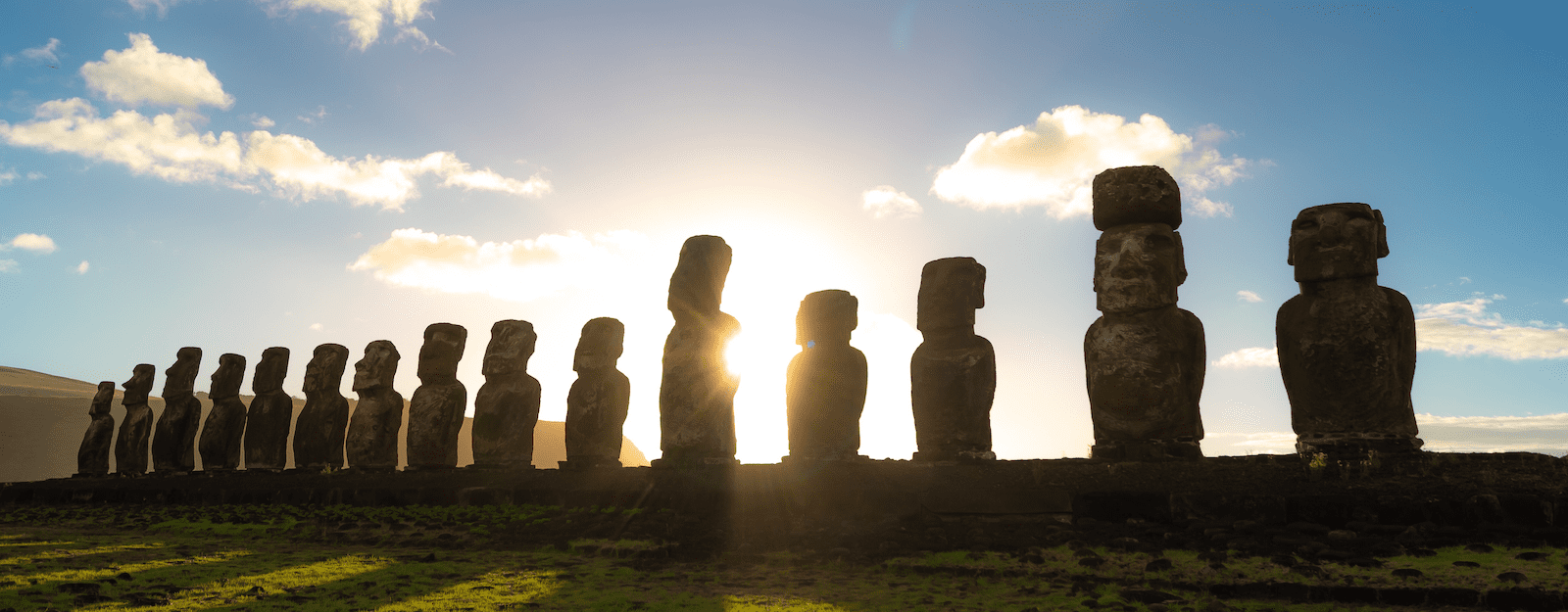Did you know that the massive stone statues of Easter Island, that symbolize those we cherish, share the same name for the Japanese concept of social connection? The shared name is moai, and in Japan the concept holds immense importance. Moai social support groups are pillars of strength within Japanese communities, and they play a role in residents’ health and longevity.
Moais are groups formed from shared experiences, values, and connections among their members. These groups provide a sense of stability and continuity in times of need and foster a strong sense of ongoing belonging and unity. The moai of Japan highlight the immeasurable value of social bonds and mutual support along life’s journey. Let’s dive deeper into moai and how you can adopt and benefit from this concept in your everyday life.
Okinawa, Japan: Moai’s Success in Action
Elders in Okinawa are known for their longevity and exceptionally fulfilling lives. Okinawans have garnered considerable attention, notably as one of the Blue Zones, due to the remarkable abundance of octogenarians, nonagenarians, and centenarians (people who live to be 80-89, 90-99, and 100+ respectively). Moai is a key factor in living a long, healthful life. Today, moais have evolved into tight-knit social networks where friends in small neighborhoods come together regularly to share life experiences, offer advice, and even provide financial help when necessary. The significant influence of moais on longevity underscores the vital role of social connections as a pillar of lifestyle medicine. Similar types of social groups have been seen in other societies known for longevity. For example, local cafes serve as gathering places for friends after work in the Blue Zone of Sardinia and Seven-Day Adventists in the Blue Zone of Loma Linda, California have regular potlucks to bring community members together.
Research Behind Moai’s Benefits
The impact of social connections on health has been the subject of extensive study. According to a behavioral economist from the University of London, increasing one’s social connectedness has a life satisfaction impact equivalent to receiving a $134,000 salary increase. Both the strength and quality of friendships, as determined by how often individuals interact with their friends and their satisfaction with these relationships, are positively correlated with overall life satisfaction. In a comprehensive meta-analysis of 148 studies involving over 300,000 participants, researchers found that people with robust social connections had a 50% greater chance of surviving all causes of death. This association held true regardless of age, gender, and initial health status.
Cultivating Stronger Relationships in Your Tribe
These five tips for building strong friendships, recommended by New York University psychologist Irene S. Levine, emphasize the importance of nurturing meaningful connections:
- Schedule Friendship: Treat your friendships with the same priority as other health-related routines by scheduling dedicated time with friends in your calendar.
- Quality Face Time: Enhance friendships by making time for phone calls, in-person get-togethers, coffee dates, and shared walks to maintain close connections.
- Celebrate Milestones: Remember and celebrate special occasions, like birthdays and anniversaries, through phone calls or cards, to reinforce close friendships.
- Create Traditions: Establish rituals or traditions with close friends, such as annual trips or monthly movie nights, to strengthen bonds that significantly impact well-being.
- Beware of Frenemies: Be cautious of “frenemies,” individuals who may appear fun, but tend to foster competition. Frenemies can have negative effects on your health, so it’s essential to prioritize connections that genuinely benefit your well-being. In fact, research suggests that interacting with people who evoke both positive and negative emotions can lead to higher blood pressure compared to interacting with those you simply dislike. This is likely why psychologists have found a connection between frenemy-like relationships and depression and heart problems.

